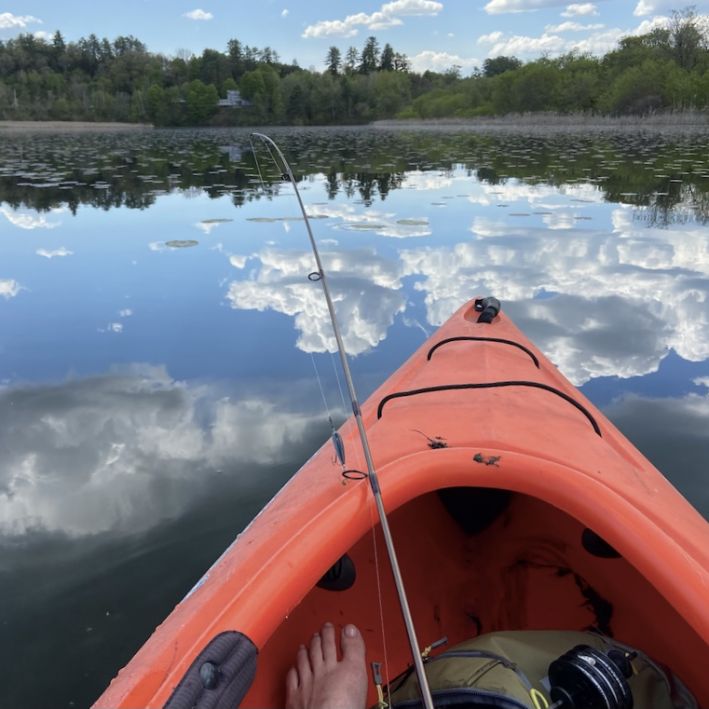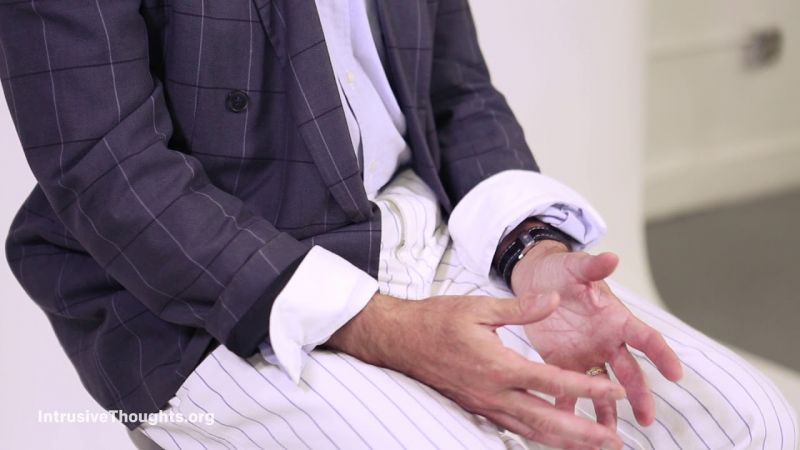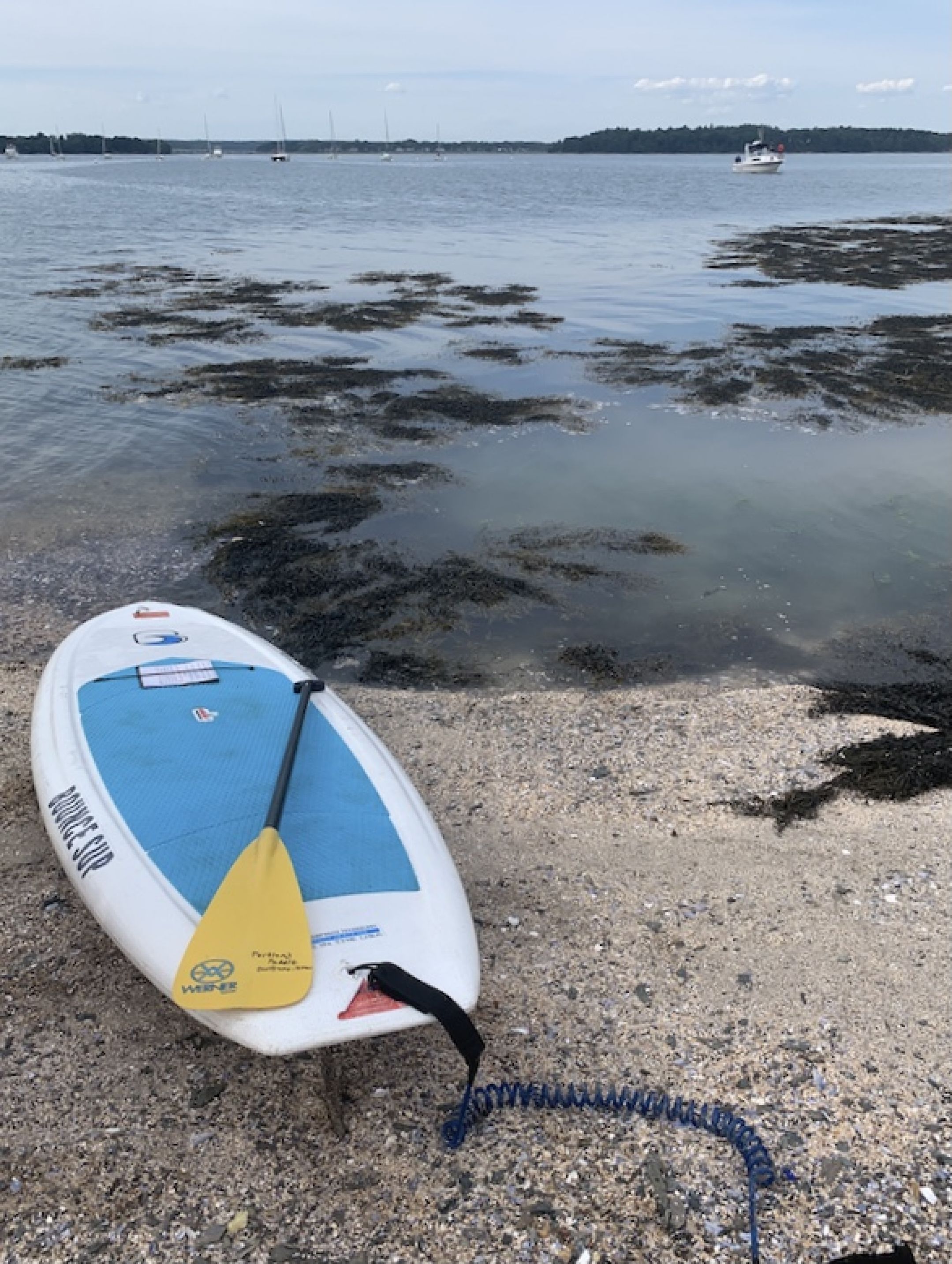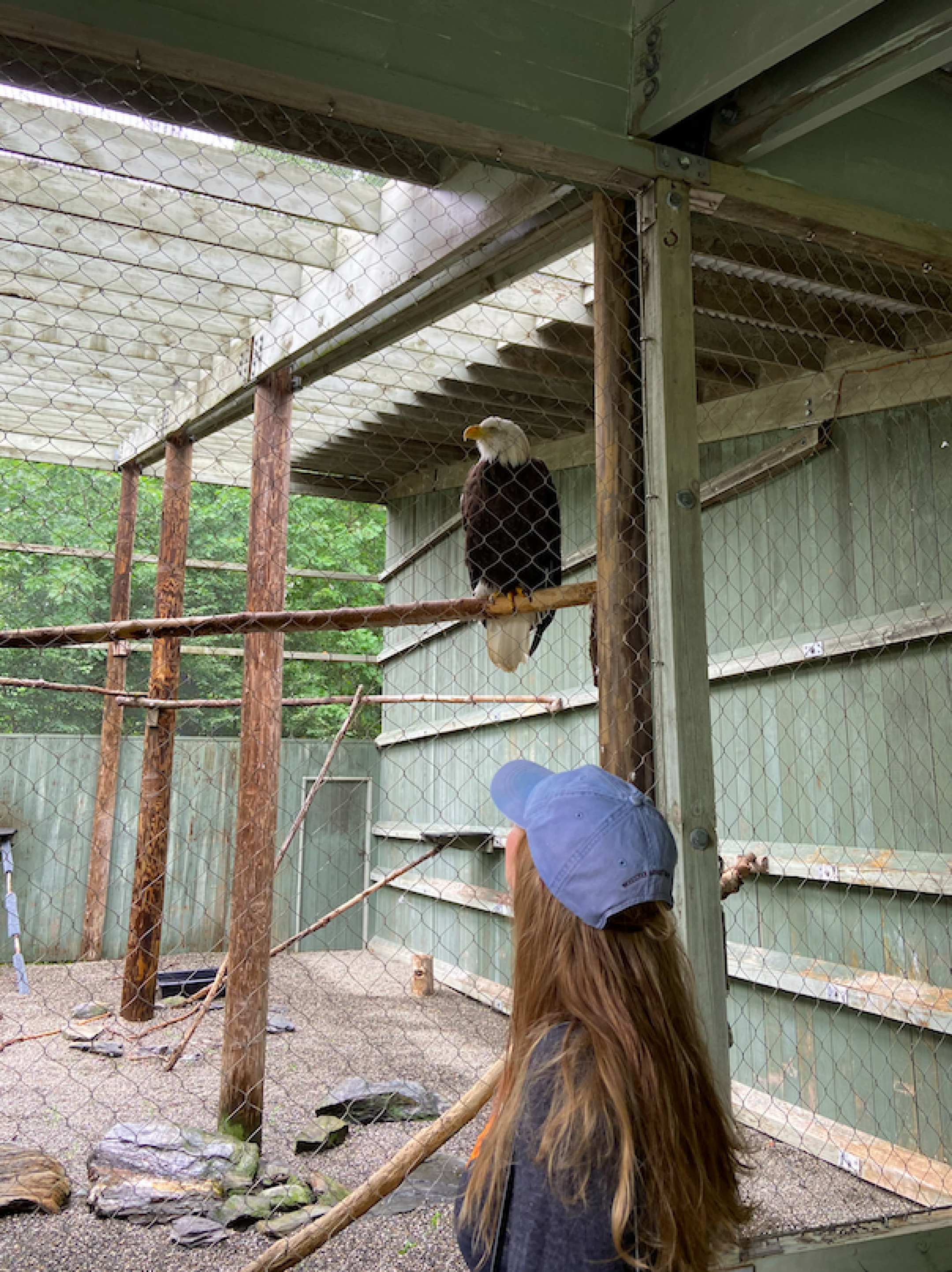Tangled In The Safety Net
How Harm OCD convinced me that I was a danger to others.
Escrito por Anonymous

01 Anonymous experienced OCD throughout her childhood.
02 At the age of 23, a spike in harm obsessions caused her to seek help and start ERP therapy.
03 While her journey to recovery was full of ups and downs, she continued to dive into exposures and eventually regain her wellness.
My earliest childhood memories involve obsessive compulsive disorder.
By the age of eight, I was consumed with the fear of my mother dying. My panic would set in around bedtime. I’d get physically ill almost every night unless I was sleeping with her, and therefore, could “make sure” nothing bad happened.
As the years went by, my obsessive behaviors began to focus on my eating. By the age of 12, I had full blown anorexia and bulimia. From 12 to 15, I faced my first prolonged OCD episode largely focused around harm obsessions.
My OCD underwent a 8-10 year hiatus, during which I engaged in copious amounts of self-medicating. I remember vividly when my OCD came back, hitting me like a ton of bricks.
I was 23 and under the influence of edible THC. I had my cat in my lap and was looking over at my boyfriend, when all of a sudden, an intrusive image of stabbing them flashed across my mind. It was so vivid and disturbing. I started hyperventilating and couldn’t breathe. I was stuck in terror for about six hours until the edibles wore off.

What is Harm OCD?
I tried showering and laid in bed, but once the harm thoughts began, they wouldn’t leave. I felt a strong urge to get rid of the sharp objects in the house — knives, hammers, pens, pencils, forks — anything I perceived as a potential weapon. I went as far as hiding a pocket knife in a box, wrapping tape around it, and placing it in a pressure cooker under the sink because I thought I’d sleepwalk in the night and stab my boyfriend.
I was convinced I was schizophrenic or had a brain tumor. I had no idea why this was happening, as it was different from any theme I’d had before. From then on, all I could do was worry that maybe, inadvertently or on purpose, I would harm someone. As soon as I saw something sharp, the intrusive thoughts would start: What if I stab myself in the wrists with that? Maybe I should just slit my throat, or maybe hers/his for that matter? Do I want to grab it? Do I have control of myself?
I avoided watching TV, as there would certainly be something my mind would latch onto. I couldn’t cook, as there were too many contamination and utensil triggers. Google was my frenemy — I never liked what I found, and it only plunged me into hours of reading and obsessing. I was trying to hide from my own mind, and in that endeavor, my world became smaller and smaller.

After about a week of this profoundly confusing and agonizing onset, I found an emergency psychiatrist. She was the first step to finding answers. I showed up right after work in my scrubs. I hadn’t slept more than two hours that week. My nights were consumed with shaking, panic attacks and trying to convince myself I was not a danger to others. She told me I had obsessive compulsive disorder.
I was shocked. OCD? The hand washing, organized, uptight person thing? No that can’t be it. So I went to another doctor. He told me I was bipolar, and that maybe I wanted to act on my thoughts. I burst into tears in his office, barely able to breath. He put me on a mood stabilizer, but when I took one and panicked, I immediately stopped. This doctor wasn’t the one for me.
Some days later, I found an OCD specialist. I walked into my first session believing I may be turned into the police, but I needed answers. After ten minutes of speaking, I thought to myself, “Maybe my life isn’t over after all.” I wasn’t dangerous or a bad person. I have obsessive compulsive disorder. The doctor and I put together a hierarchy and got started on exposures immediately.
We started off small, as I was far down the rabbit hole of compulsions. My first assignment was to sit next to a pair of chopsticks, then have them in my purse, then under my pillow, and so on. Eventually, I was able to chop vegetables with big knives and brought all my utensils back into the house. While OCD was always a bit in the background, the battles became less frequent and intense. I felt like a person again, and not the shell of a body consumed by mental illness.
After getting better, my relationship fell apart. The pandemic exacerbated certain issues, and my boyfriend couldn’t come to terms with dating someone who had a chronic mental illness. On various occasions, he’d become enraged when he saw me doing compulsions. He’d scream, “Why can’t you be normal? Why are you so f*cking r*tarded?” I wept hearing these words and asked myself the same questions. Other people may have been affected by my mental illness, but I was the one on fire, biologically condemned to torture myself.
The year to come was a year of metamorphosis. I got my own apartment. It was the first time I’d lived by myself in about four years. I was happy I could start over again, and was doing well for about a month. Then, I was hit by the most intense OCD episode I’ve ever had. I knew that the pandemic and approaching winter would have an impact on me, I just didn’t realize how much.

I felt an impending doom for a few weeks as my compulsions were winding up. I had no appetite. I couldn’t sleep. I was in constant panic mode and experiencing episodes of derealization. The harm theme came back full force. My hands were raw from hand washing because I thought that was the only way to make sure drugs weren’t on me or any surface I touched. My fear was that a drug would absorb through my skin and cause me to have a psychotic break where I would violently attack people.
Being in the medical field, a large part of my job is handling drugs and injectables. My job was massively affected by my OCD: Am I knowingly causing harm to my patients? Did I enjoy injecting that into the animal for some sick reason? Am I sexually attracted to dogs? Did I just absorb that drug through my skin?
I almost needed to go on disability when I stopped showing up to work for two weeks. My compulsions were more grandiose than ever. I would drive myself to the ER and say, “Please help me! I don’t know what else to do.” Then, my therapist and psychologist would talk to them, and they would send me home with a Xanax and a look that said, “Oh, she’s not suicidal or psychotic. She’s just anxious.” I felt like no one knew the level of my discomfort and how urgent it felt. It got to the point where I just wanted to be strapped to a bed to make sure that nothing would happen.
That’s OCD’s trap. There’s no way to achieve 100 percent certainty. The stakes will just get higher and higher. I was giving OCD everything it wanted. For that reason, I became the most ill I’d ever been. My intense fear and mistrust of medication was holding me back. My therapist decided I needed more therapy than his schedule allowed, so I began outpatient with the Anxiety Institute.
I started going to five therapy sessions a week. We had to start smaller than ever before. Our main goal was to get me to a place where I could safely take antidepressants. But we weren’t even at zero, we were in the negatives. Ironically, the thing I feared most was one of the main ingredients to my wellness.
I was allowed no more reassurance, googling, or engaging in compulsions. This was hard work. Exposing yourself during an acute OCD episode can feel traumatic. I was too afraid to drive, go on trains, or touch things. I was too afraid of everything. The only emotion I felt was panic.
After about two weeks, I began to feel relief. We were making progress. I stayed with the Anxiety Institute for about two months until I graduated, and went back to more “normal” therapy. By the end, I was taking a microdose of Lexapro and slowly working myself up to a therapeutic dose.
Condiciones relacionadas
As the months went by on Lexapro, something incredible happened. The panic attacks slowly started tapering off. I was able to dive into the exposures more without white knuckling. My chains began loosening, and eventually falling off. I began to live again, with the borders of my world expanding before my eyes.
I began having full restful sleep, unencumbered by night sweats and horrific images. I could enjoy food again. My edgy sense of humor had returned. I got excited about trying new things. For the first time in my entire life, I felt true wellness.
OCD can make you feel like you’re on a never-ending hamster wheel, running yourself bloody with no eject button. I hope this story gives hope to those in the trenches of battle against their own mind. I am five years sober from hard drugs, and I occasionally have a drink here and there. But the contrast between where I am and where I have been is magnificent, and I am proud of that. Now, the rest of my life begins.
Sobre el autor
Anonymous is a 27 year old veterinary technician who is about to get her license in New Jersey. She majored in psychology during college.
Apoya nuestro trabajo
Nuestra misión es cambiar la manera en que el mundo percibe la salud mental.



















